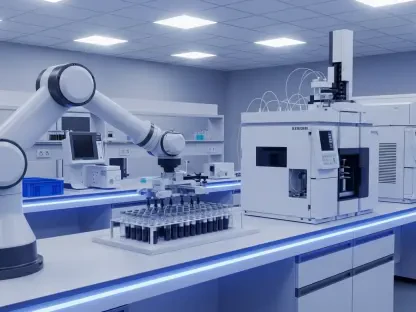Imagine a world where cancer treatment is not just about managing a disease, but consistently achieving lasting remission through groundbreaking therapies that target cancer at its core. The oncology community stands on the brink of such transformative change, fueled by rapid advancements and an unyielding spirit of collaboration. As the field looks ahead to 2026, there is palpable excitement about the potential for significant breakthroughs that could redefine patient outcomes. This optimism stems from recent strides in innovative therapies and a renewed commitment to shared knowledge, even as systemic challenges loom large. The dynamic interplay of scientific progress and community engagement has created a fertile ground for innovation, positioning oncology as a field ripe for monumental achievements in the near future. Despite hurdles, the collective resolve to push boundaries and improve lives remains stronger than ever, setting the stage for a pivotal era in cancer care that could benefit millions globally.
Unleashing Innovation Through Cutting-Edge Therapies
The momentum in oncology is largely driven by remarkable advancements in therapeutic approaches that promise to tackle cancer with unprecedented precision. Novel agents such as bispecific antibodies, which can target two different antigens simultaneously, and protein-engineered antibody-drug conjugates, designed to deliver toxic payloads directly to cancer cells, are reshaping treatment paradigms. Radiopharmaceuticals, another frontier, offer targeted radiation to destroy tumors while sparing healthy tissue. These innovations have been rigorously tested in clinical trials, with results presented at major conferences, sparking enthusiasm across the field. The ability to refine these therapies over the coming years, from now through 2026, could lead to more effective and less toxic options for patients. This wave of scientific discovery underscores a vibrant research landscape where each finding builds on the last, creating a ripple effect of hope. The focus remains on translating these complex technologies into accessible treatments that can reach diverse patient populations worldwide.
Strengthening Collaboration Amid Systemic Challenges
While scientific progress fuels optimism, the oncology field grapples with significant barriers, particularly in securing adequate federal support and fostering essential partnerships. The limited presence of key governmental bodies like the National Cancer Institute and the FDA at recent gatherings has raised concerns about funding for national clinical trials and the pace of regulatory approvals. Such gaps hinder the ability to scale promising research into widespread clinical application. However, the community has responded with resilience, seeking alternative revenue streams and emphasizing the value of in-person collaboration at conferences to bridge divides. These interactions, revitalized after global health disruptions, have reinforced a shared mission to advance cancer care through collective effort. Looking toward 2026, the emphasis must be on overcoming these self-imposed setbacks by advocating for stronger governmental engagement while continuing to nurture industry and academic alliances. This dual approach reflects a determination to sustain progress, ensuring that systemic obstacles do not dim the hope for transformative breakthroughs.









